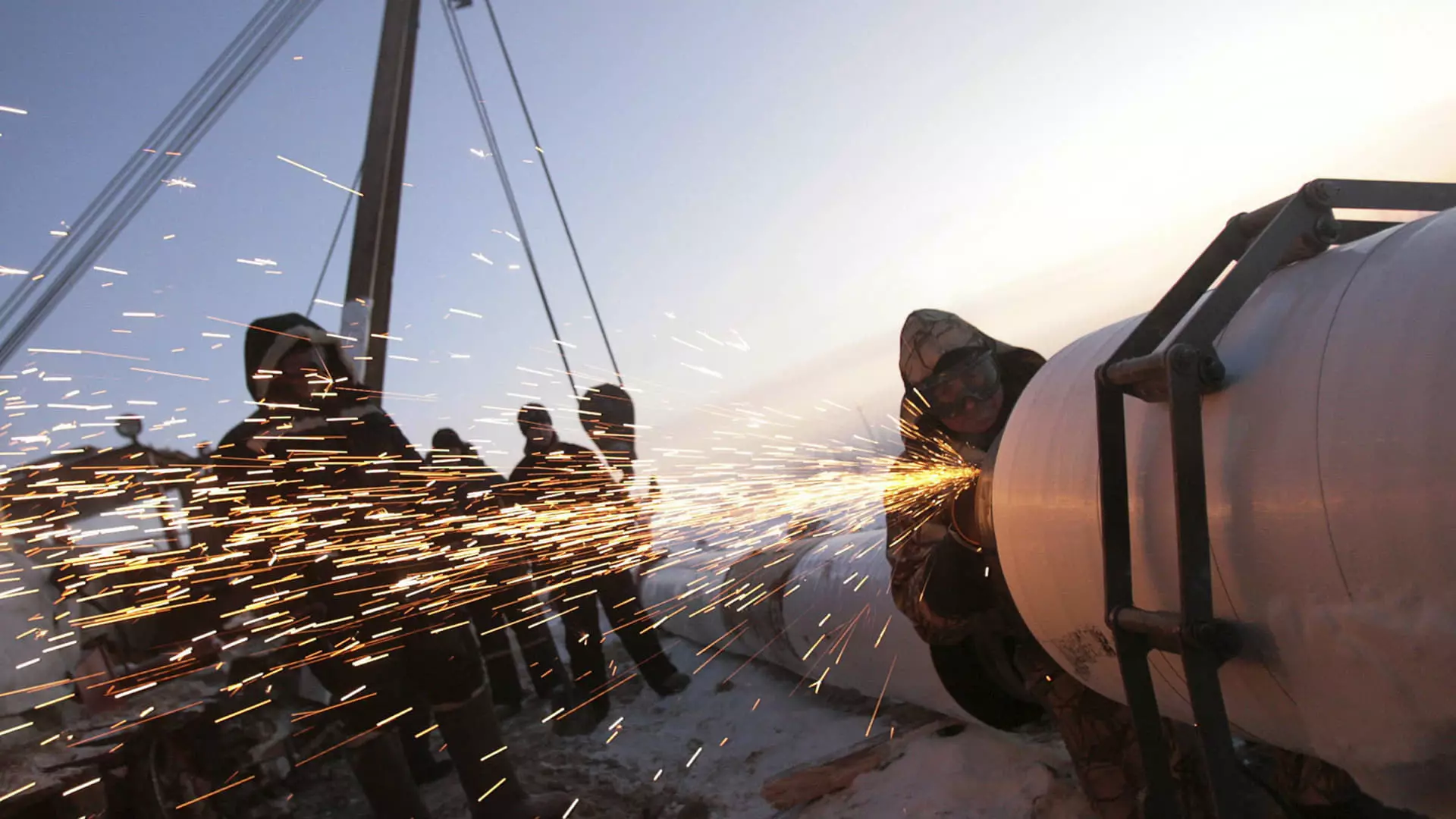The intricate dynamics of European energy supplies, particularly in relation to Russian gas exports, have undergone seismic shifts in the wake of geopolitical turmoil. The longstanding supremacy of Russia as a reliable energy vendor has been severely tested, compelling a reevaluation of energy dependencies and supply routes. This article delves into the repercussions of such changes, underscoring both areas of concern and emerging strategies for European nations grappling with shifted realities.
Despite ongoing attempts to maintain a steady flow of gas via Ukraine, Gazprom, Russia’s state-controlled energy behemoth, is facing unprecedented challenges. Observers noted that while gas exports to Europe continued, the cessation of supplies to Austria’s energy company, OMV, marked a significant turning point. Following an arbitration ruling stating that Gazprom failed to meet its obligations toward OMV in Germany, Russia made the decision to halt gas deliveries—exacerbating tensions between the two countries and further straining an already fragile relationship. This decision encapsulates not only the immediate fallout of legal disputes but highlights the overarching uncertainty that now characterizes Russian-European energy exchanges.
Historically, Russia stood as the cornerstone of Europe’s natural gas supply, boasting a majority market share prior to the outbreak of the Ukraine war. Figures reveal that at one point, Russia was responsible for sending approximately 35% of Europe’s gas. However, its dominance has significantly diminished after geopolitical tensions escalated, resulting in the diminishing of long-established energy ties and the collapse of major pipelines, including the Nord Stream. This shift has prompted European nations to consider alternative suppliers, such as Norway, the United States, and Qatar.
The systemic changes brought on by the conflict have not merely redefined market shares but have also created new dependencies. Today, Hungary and Slovakia emerge as the last bastions of substantial Russian gas flows into Europe, raising questions about future energy security and the sustainability of these relationships given rising tensions and ongoing conflicts.
Austria serves as a microcosm for the challenges facing European energy consumers. With OMV accounting for a significant portion of gas imports through Ukrainian routes, the stoppage of supplies is emblematic of the pressing vulnerabilities that countries like Austria now confront. As of 2023, the gas transit from Ukraine has fulfilled 65% of the energy demands for not only Austria but also its neighboring states, including Hungary and Slovakia. The stoppage highlights not just the dependence on Russian gas but raises alarms about energy reliability and the need for rapid diversification.
The difficult reality facing countries dependent on Russian gas is reflected in fluctuating supply levels. Despite Gazprom’s claims of steady supplies, statistics reveal that deliveries to Austria fell short, plunging to about 16% below pre-existing averages. This inconsistency raises significant concerns among policymakers and energy regulators, pushing for urgent measures to secure energy futures.
In light of such troubling developments, European leaders have begun strategizing for a more secure and independent energy future. Diplomatic dialogues, like the recent conversation between German Chancellor Olaf Scholz and President Vladimir Putin, illustrate attempts to navigate a path forward, albeit with rising skepticism regarding mutual cooperation. European leaders are proactively assessing alternative energy sources and routes, recognizing the need to mitigate reliance on Russian energy imports.
Furthermore, the looming closure of the Urengoy-Pomary-Uzhgorod pipeline at the end of the year underscores the urgency surrounding energy diversification. The Ukrainian government’s refusal to renew transit agreements has left many wondering how Europe will weather the impending reduction in supplies. With China and other emerging markets vying for energy resources, the competition intensifies, prompting a rethinking of energy partnerships.
As Europe traverses this complex energy landscape marked by fluctuating supplies and geopolitical tensions, the need for innovative strategies and solutions has never been more critical. The capacity to reshape energy dependencies and foster resilience against external shocks has become paramount. The gradual unravelling of Russian gas exports to Europe—once seen as a robust link—reveals a fragile tapestry that demands immediate attention and recalibration. Future energy security hinges on Europe’s willingness to unify efforts toward diversification and strengthened cooperation with alternative suppliers, ensuring a more stable and independent energy landscape moving forward.

